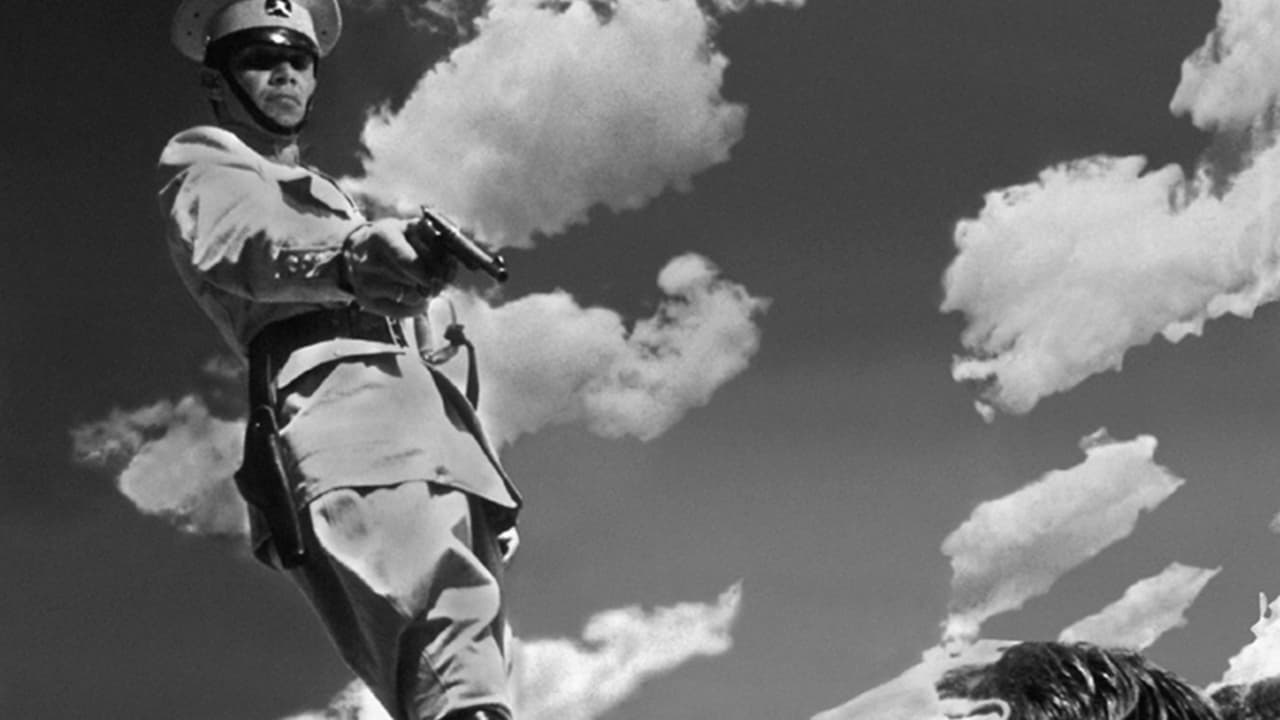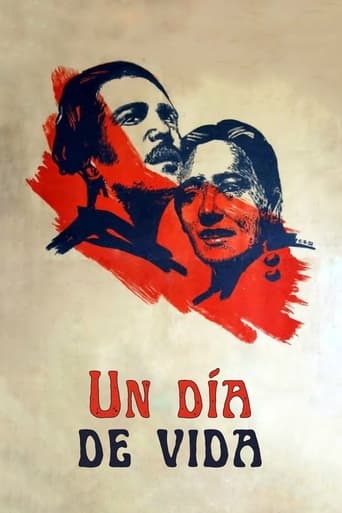

Slow pace in the most part of the movie.
... View MoreThe film's masterful storytelling did its job. The message was clear. No need to overdo.
... View MoreThis movie feels like it was made purely to piss off people who want good shows
... View MoreThis is a small, humorous movie in some ways, but it has a huge heart. What a nice experience.
... View MoreMy mother, a film fan whose opinion I always trust, suggested that we see One Day In Life because she watched it some forty years ago and still remembered the effect it had on her back then. And truly, the film can be considered a small classic of non-american cinema. In a turbulent historical period viewer gets to witness a simple but so strong story of love between mother and son. Even though he will be executed the next day for his political crimes he has only one goal, to see his mother on her birthday as he always did. Films acting and characters are solid and well played out, with simple but strong motivations. There are also some great examples of skillful cinematography. But along with the powerful story the true star of the film is its music. Constant vibrant score that elevates the atmosphere and amazing and catchy mexican mariachi songs with emotional messages truly elevate the film and make it so mesmerizing. Seeing tears in your mother's eyes after she had seen a film that she hadn't seen more than forty years really shows how touching and eternal this picture is. The relatable story of love and loss is portrayed with emotion and skill. And of course the incredible music will follow you much after seeing the film, bring tears to your eyes and for a moment help you remember of undying love between a mother and a child.
... View MoreMexico has just gone through revolution led by Emiliano Sapata (IIRC). Young and good-looking Cuban journalist Belén Marti comes to México on business, to write about changes in the country. Soon she finds out that colonel Lucio Reyes has been sentenced to death. As a last wish, colonel is allowed to see his mother, Mama Juanita. Belen accompanies Lucio to his native village. There, Lucio sings mananitas to his beloved mother. Belen falls in love with him.At this point, no one can hold back tears, including Cuban journalist, Mama Juanita and cinema's audience. I cried too, both time I watched the movie. As d_pokrajac wrote above, the movie was extremely popular in Yugoslavia in early 60s. Songs from the movie were translated into Serbian and were sang by such great singers as Predrag Cune Gojkovic.Here is one version of Lucio's song to Mama Juanita, translated into Serbian language:Sutra Rano Kada Sunce / Zbaci S Neba Prvi Sjaj / Nece Biti Tvoga Sina / Zivotu Mom Bice Kraj.Moj Zivot Je Kratak Bio / I Prolazan Kao San / A Ja Zelim Samo Jedno / Da Zivim Jos Jedan Dan.U Zoru Vec Cula Se Pesma / Ispred Tvoga Suncanog Praga / I Celo Je Selo Doslo / Tebi, Mama Huanita Draga.Tvoj Rodjendan Je Slavlje / Za To Celo Selo Zna / Nek' Je Tebi, Mama Huanita / Sad Posvecen Pozdrav Taj.After seeing his mother for the last time, Lucio returns to prison, only to be shot dead next morning. Mama Juanita comes to prison to take her son's dead body.
... View MoreThis is great romantic movie, with unforgettable Mexican music. The brief plot: the movie is about two men in Mexican revolution, one being a high military officer and another, being sentenced for capital punishment. The mother of one of them come to see the prisoner, but she was not told that these guys, previously close friends, are now adversaries. The movie has nice cinematography, was done in great BW, and was extremely popular in Yugoslavia in fifties. My mother used to watch the movie three times and cried each time, I watched that movie in the cinema on June 17th, 1986 and cried too. A copy of the movie has been preserved in the "La Cinémathèque de Yougoslavie" and I mention this because I've heard that the original negative has been lost, so somebody from Mexico might be interested in preserving this gem...
... View More